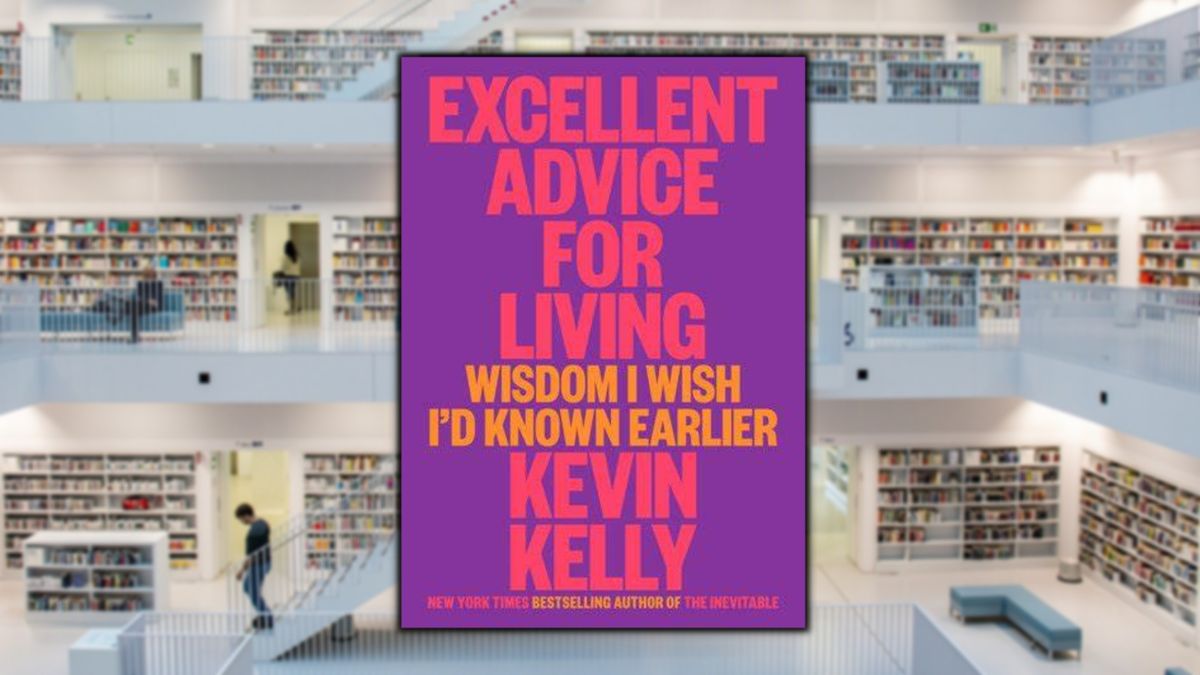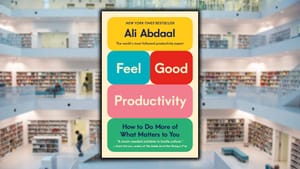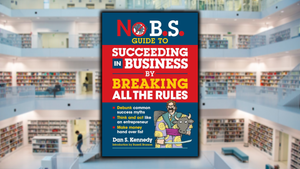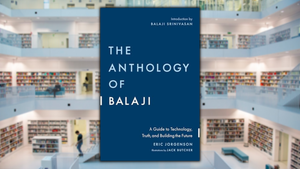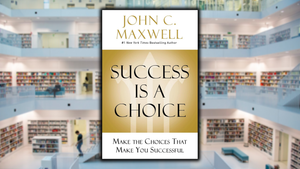
This Book is For:
*Young people who are staring impending adulthood in the face and who want to catch a glimpse of how kind, creative, successful, and wise they could potentially become.
*Parents who love their children too much to let them leave their protective embrace without arming them with essential wisdom for living in peace, comfort, and happiness.
*Everyone who feels the need to push back against the relentless pressure of the outside world to conform to a predetermined script of how their lives should unfold, and who instead wishes to construct their own vision of what life should be about.
*Lifelong learners who, regardless of how much they've read, seen, or experienced already, feel as though they could never possibly learn enough about life, and who want to keep drinking from the proverbial firehose of human wisdom that is Kevin Kelly.
Summary:
"On my sixty-eighth birthday, I decided to give my young adult children some advice. I am not a frequent advice giver but soon I was able to write down 68 bits. To my surprise, I had more to say than I thought.
So for the next several years I wrote down a batch of advice on my birthday and shared it with my family and friends. They wanted more. I kept going until I had about 450 bits of advice I wished I'd known when I was younger.
I am primarily channeling the wisdom of the ages. I am offering advice I have heard from others, or timeless knowledge repeated from the past, or a modern aphorism that matched my own experience. I doubted any of it is truly original, although I have tried to put everything in my own words.
I think of these bits as seeds because each one of them could easily be expanded into a long essay. Indeed, I have spent most of my time writing by compressing these substantial lessons into as compact and tweetable forms as possible. You are encouraged to expand these seeds as you read to fill your own situation.
If you find these proverbs align with your experience, share them with someone younger than yourself."
-Kevin Kelly
Just because you're old doesn't mean that you automatically have much valuable wisdom to share. Some people haven't really lived 10,000 days, they've just lived the same day 10,000 times. Kevin Kelly, however, is an exception, and it turns out that the brilliant and insightful tech innovator gives excellent life advice.
For anyone hearing about Kelly for the first time, he is the co-founder of Wired magazine and a highly-praised futurist and author whose optimistic outlook on the next chapter of human history has inspired a generation to think bigger and to advance confidently into the next stage of human evolution.
It's not controversial to point out that humanity faces tremendous internal and external survival pressure, including some fairly intimidating existential threats that we can no longer ignore if we wish to continue to exist as a species.
But we've all had enough of that pessimistic, misanthropic "life advice" from people who don't even try to come up with any answers to our problems. This much is now clear: if you want to change history and survive long enough to do so, you bring in an optimist.
As Kelly says in the quote that began this summary, the life advice presented in this book was originally intended for his young adult children to help them navigate the hazardous future we all find ourselves hurtling towards. But the very act of writing them down caused him to realize that he had much more to offer than he thought he did when he began, which resulted in him eventually compiling this wonderful collection of 450 wise, practical, and incredibly valuable aphorisms.
The range of subjects they cover is as wide and deep as life itself, and so you'll find here advice about setting ambitious goals, cultivating peace of mind and equanimity, dealing with loss, organizing your life around adventure and spontaneity, dispelling anger and sadness, minimizing regret, and so much more.
One criticism that's leveled against the book - fairly, I believe - is that he doesn't offer much in the way of context, which is why I've selected 17 of the aphorisms here and gone more deeply into why I think they're important and how you can implement this wisdom into your life to make it better.
Now, in a book with hundreds and hundreds of wise, practical aphorisms, my choices about which ones to expand on and which ones to ignore likely say more about me than they do about whether they're the "best" aphorisms or the "most useful" ones.
However, I've tried to select the ones I think are going to be the most thought-provoking and mind-expanding for many people. In the whole book, though, I really didn't find too many that weren't worth reading at least once, and so, as per usual, I've once again featured a book on the Stairway to Wisdom that I believe most people should read themselves in its entirety.
As you read the book and filter this life advice through your particular worldview, situation, and understanding, you're probably going to disagree with at least a few of them, or find them irrelevant or silly, etc. But which ones those are will change depending on who you are. That's part of what makes books so magical!
That being said, if it's true that your quality of life is roughly equal to the quality of the 20-30 people who give you the best advice, then you'd be wise to include Kevin Kelly in that group.

Key Ideas:
#1: The Future is Decided by Optimists
“Over the long term, the future is decided by optimists. To be an optimist, you don't have to ignore the multitude of problems we create; you just have to imagine how much our ability to solve problems improves."
Given the freedom to do so, humanity solves far more problems than we create. We've already survived so much - and we've made such incredible progress towards making this Earth free and beautiful - that it would be a damn shame to stop now.
Naturally, pessimists will always try and point out that the world's on fire: poverty, misery, destruction, and death everywhere you look (and, increasingly, you have to look harder and harder to find any). But Kevin Kelly isn't saying that we ignore what's going on and focus exclusively on the positive.
Indeed, we need to recognize where we still have more progress to make, because then we can actually do something about it. But, both optimists and pessimists should be aware of the facts before they start handing out life advice:
More than 2.6 billion people have received access to an improved water source since 1990, and the poorest countries in the world in the 1950s were richer than the richest countries in the world in 1800. Technology and innovation advance with or ahead of our greatest problems, and now's not the time to stop pushing for further progress.
#2: Play the Long Game
“We tend to overestimate what we can do in a day, and underestimate what we can achieve in a decade. Miraculous things can be accomplished if you give it 10 years. A long game will compound small gains that will be able to overcome even big mistakes."
In keeping with the first Key Idea, I believe we should focus more on our current trajectory than our current results.
As I write this, it's only 2023. Philosophers like Will MacAskill believe that should humanity surmount its current problems and protect itself from future existential threats, we could be looking at potentially millions of years of human history yet to come!
It's often difficult to put such huge numbers into context, but even today, some of the damn-near futuristic medical advances that are either available now or coming soon used to belong to the realm of science fiction. Now they're science facts.
On a personal level, although the length of our lives is uncertain, embracing long-term strategic thinking can help us make smarter moves in the present that will set us up for extreme success in the future.
My advice is to plan in decades, even while you commit to taking massive action today. Entrepreneur Gary Vaynerchuk refers to this as macro patience, micro speed. It's where you realize that every single moment of every single day matters, but you're not in a rush to achieve results, because you know that if you take the required amount of action every single day, you're going to get somewhere amazing eventually.
The potentially vast human future that is opening up before us today can help us to stretch our own time horizons, and help us realize that we have no time to waste, but we have all the time we need.
#3: Win Big by Aiming Huge
“The advantage of a ridiculously ambitious goal is that it sets the bar very high, so even if your effort falls short, it may exceed an ordinary success."
The true value of thinking big in life - of thinking huge, really - is that it gets our imaginations firing in spectacular new ways. Massive dreams and ambitions expand our minds, and even if we don't achieve every single thing we set out to do, a mind expanded by a huge goal never returns to its original dimensions.
Naturally, it's important not to tie up our whole self-worth in whether or not we achieve this "One Big Thing," and it's also important to cultivate the skill of happiness so that we can find pleasure and meaning in the process, even though we may be quite far away from our goal currently.
To aim big, we need to ask big, powerful questions like, "How would I do this?" and not, "Is this possible?" Or another favorite of mine, "What would I attempt if I knew I could not fail?" These are the kinds of questions that expand our minds and our possibilities, not questions that cause us to shut down and stay small.
Regardless of the results we achieve, there is tremendous value in the attempt itself. Imagining the grand vision and building it out in your mind changes your orientation to life, and where you end up is far less important than who you become on the way there.
#4: There's Always Five More
“When you feel like quitting, just do five more: 5 more minutes, 5 more pages, 5 more steps. Then repeat. Sometimes, you can break through and keep going, but even if you can't, you ended five ahead. Tell yourself that you will quit tomorrow, but not today."
Tom Platz was said to have "the greatest legs in bodybuilding," and there's something he used to say that has driven me forward on more occasions than I can even remember: "There's always five more."
No matter how much you want to quit, no matter how much it hurts, no matter what...there's always five more. Five more reps, five more sales calls, five more pages, five more steps, five more days. Whatever you're doing in life, you can always do more; there's always more inside of you left to give, and you have to give it, or else you'll regret it for the rest of your life.
At the end of the day (indeed, at the end of your life too), it's about demanding more from yourself; it's about making an unbreakable promise to yourself that you will always, at all times and in every situation, commit to doing your absolute best and pulling your best out of you, even when you think you have nothing left.
As you may be able to tell, I feel very strongly about the importance of this idea, but in terms of the quote above, I'll just say that you can always quit tomorrow. You can take a break tomorrow. You can always keep going for one more day.
#5: How to Be 110% Happier
“When you give away 10% of your income, you lose 10% of your purchasing power, which is minor compared to the 110% increase in happiness you will gain."
Money can buy happiness, but in order to receive the full effect, you have to spend it on other people. I should also say that there's nothing special about the number 10% - it's more of an orientation towards life, a focus on what you can give, instead of what you can get. I've found that just leads to a happier state of being overall.
The effect is heightened even more if you get the chance to actually see the positive impact your money can have on the person to whom you're giving it. Whether you're giving it away in person, or donating to a particular person on a site like Kiva.org, it just feels really...good to know that you're making an actual, measurable impact on someone else's life. I highly recommend it!
If you're looking for charities to donate to, I'd personally recommend organizations such as Doctors Without Borders, Human Rights Watch, Kiva, and Amnesty International, and there are even awe-inspiring organizations such as GiveWell.org that help match people with the most effective charities, where their donation dollars can go the furthest.
Finally, since it's one of my greatest joys in life to support literacy and education, I'd love it if you joined my Charity Reading Challenge in support of First Book. But regardless of whom you choose to help, there are so many excellent charities that could use your support, and there is so much happiness available to gain by supporting their lifesaving work!
#6: Is There More?
“Listening well is a superpower. While listening to someone you love, keep asking them 'Is there more?' until there is no more."
One of my biggest role models is a French philosopher by the name of Simone Weil, and one of the things she was known for was the intense quality of her attention and the deep, felt connection that was experienced by everyone with whom she spoke.
In a world where so few people ever feel truly listened to, she would give the human being in front of her the gift of her complete attention.
She wasn't just waiting for the other person to finish talking so she could say something. She wasn't thinking of all the ways in which this person was wrong or stupid or anything like that. No, she just saw them, and kept asking, implicitly, "Is there more?"
Listening, completely and totally and with full acceptance and humanity, is indeed a superpower, not to mention one of the greatest and rarest gifts you could ever give someone. This is especially true in a society where fewer people than ever before truly feel seen by others.
#7: How to Be Interesting
“The more you are interested in others the more interesting they'll find you. To be interesting, be interested."
In the wonderful - and insanely popular - book, How to Win Friends and Influence People, Dale Carnegie tells the story of when he was at a New York society party and the hostess came over to introduce herself.
As he tells it, most of the conversation consisted of him listening, asking good questions ("Is there more?"), and being genuinely interested in what his hostess had to say. And you know what?
It turns out that after Dale Carnegie left the party, the hostess went on and on about how great a conversationalist he was! Isn't that wild! He became interesting by being interested.
Instead of trying to impress people, or pushing his accomplishments or intelligence into the spotlight, he made the conversation about them. What's In It For Them? by Joe Polish is another modern classic in the spirit of How to Win Friends and Influence People, but it helps to realize that generally, people love to talk about themselves, and most people's favorite word is their own name.
#8: A League of Your Own
“Don’t be the best. Be the only.”
If anyone can do what you do, then they'll just hire anyone. But if no one can do what you do, then you occupy a uniquely powerful position in the market. When you are quite literally exceptional, then you're no longer just the best choice. You are the only choice. That's power.
To use a personal example, there is literally no one in the entire world who can do what I do on social media. I mean, sure, people could, but I'm working completely flat-out, every single day, to become the most disciplined, well-read, fit, rich, valuable person I possibly can be. In my case, the power comes from the fact that my unique positioning - the combination of all those things - is something that's literally never been seen before.
The cartoonist Scott Adams put it very well when he said that it's better to enter the top 10% of two different fields and combine them than it is to try to enter the top 1% in just one field. The competition to enter the 1% of anything is just...insane. There have to be so many things that fall into place at the exact same time, you have to be insanely disciplined and hardworking...it's a lot of pressure.
There are always going to be people who are more well-read than I am, richer, more jacked, etc. But the intersection of two or more things is where you or I can become "the only."
In Adams' case, he says himself that he's not the best cartoonist, but he's pretty good at what he does. Likewise, he's not the funniest person in the world, but he's pretty damn funny. And when he combined those two skills to create Dilbert, the internationally syndicated comic strip, that's when he left the competition behind and became "the only."
#9: The Best Way to Learn Anything
“The best way to learn anything is to try to teach what you know.”
When you teach something, you get to learn it twice. That's because in order to teach it effectively, you have to assimilate that knowledge so deeply and externalize it again in a way that's going to be helpful to others.
It's so easy to trick ourselves into believing that we know something, until we try to teach it to someone else, only to discover that we can't exactly articulate what we're trying to say in a way that's valuable and easy for others to understand.
There are more than a few excellent books about learning and skill acquisition, and I've written breakdowns on two of them here and here, but teaching others consistently ranks among the best ways to learn something yourself.
#10: Inoculate Yourself Against Hardship
“When you are young, spend at least 6 months to 1 year living as cheaply as you can, owning as little as you possibly can, eating beans and rice in a tiny room or tent. That way, any time you have to risk something in the future, you won't be afraid of the 'worst-case' scenario."
If you stare back unafraid at the absolutely worst-case scenario that you can think of, and resolve to meet it, then nothing you'll ever face after that will be able to defeat you. You will be inoculated against hardship, and able to surmount virtually any difficulty.
It's best to do this early in life so that being contented with little becomes second nature to you, and nasty problems that stop other people in their tracks will mean nothing to you because you've faced it all before and proven to yourself that you can handle it.
At one point in my life, I determined that I could live - contentedly and happily enough - on just $500 a month. Yes, just five hundred dollars could pay for my dirt-cheap rent, all my food, my gym membership (can't live without that!), my library card (free) - all of it. Of course, in that worst-case scenario, I wouldn't have a phone, I'd rarely go out, I'd never travel - there are so many reasons to earn more than $500 a month. But the point is that I could do it if I absolutely had to, and I wouldn't be a whiny little bitch about it, either.
Now, when I turn inward and get in touch with that deep inner strength that comes from knowing that I'll always be okay, I'm able to draw upon immense power that I can bring with me as I move through the world, building my dream life. I have enough, I can live on even less, and although I am pursuing more, I will always be okay. This is perhaps one of the only true cheat codes to life.
#11: How to Get (Virtually) Anything You Want in Life
“To succeed, get other people to pay you; to become wealthy, help other people to succeed."
Motivational speaker and legendary personal development expert Jim Rohn used to say that you can get virtually anything you want in life, just as long as you help enough other people get what they want. This has been a guiding principle of my life, and I'm a steadfast believer in the truth of this statement.
In our globalized society, your success is intimately connected with the success of everyone else with whom you are networked. We can all win, and a rising tide lifts all boats.
The idea is to play long-term games with long-term people; to always go for win-win, and avoid merely transactional, one-off relationships that don't make both parties better off. Be a resource for people, be valuable to your entire network, and give give give! And you shall receive. This is pretty much a Law of the Universe. Mutual aid and assistance make us all better off and give meaning to all our lives.
#12: Find the Third Side
“Whenever there is an argument between two sides, find the third side.”
Someone once asked me whether I considered myself a member of the "Left," the "Right," or whether I would place myself somewhere in the middle. Contrary to their expectations, I answered that I was "Above."
That's absolutely not to say that I was "better" than anyone on the Left or the Right, only that I recognized that there is something to learn from everyone, nobody has all the answers, and the people who claim to have everything figured out are usually the biggest simpletons of all.
I will say, though, that sometimes, people are just...wrong. I'm not going to pick apart particular issues, but there are blundering idiots on both sides who believe things that are ridiculous on a level that's just...stupid.
As such, it can be a mistake to fall victim to "both-sides-ism," where you automatically think that both sides have valid points. Not always! But, my point is that you can't tell who's wrong simply based on what side they're on. Find the third side, and see if it changes your first opinion.
One final thing I'll add to this discussion is that perhaps it's best not to judge an entire group of people based on the actions and beliefs of the worst 5% of their members. Not unless you want people to do the same to you.
#13: Choose Optionality
“Go with the option that opens up yet more options.”
One piece of advice I give most often is to set up your life so that you give yourself at least two ways to win and no way to lose. What this means is that whenever you decide to do something, it's because there are multiple possible benefits and very few ways in which things could go wrong. An example will make this concept much clearer.
There's an online writing platform called Medium that pays writers based on the number of views their articles get. There are other ways to make money on the platform, but for our purposes here, suffice it to say that if you're a writer, there's virtually no downside to writing on Medium!
Yes, you're expending a certain amount of time and effort to do something that may not pay off in the way you expect - you're incurring inescapable opportunity costs - but there are many things that can go right.
For one thing, getting in the habit of writing consistently (and reading the work of other great writers on that platform) will make you a better writer. So even if hardly anybody reads your work, you're still gaining the benefit of becoming a better writer.
Second, there's the opportunity to get paid - and paid extremely well - if you do put in the required time and effort and your stories and articles begin to take off. Then there are all the networking opportunities that interacting with other readers and writers on Medium offers you, plus you can direct readers back to your website by linking to your other work, etc.
As a writer, there are so many benefits that come with publishing your work on Medium, and virtually no way to lose. Worst-case scenario you become a better writer, meet some cool people and gain the benefit of experience doing something difficult that you've never done before. Best-case scenario, your writing career explodes, you make fistfuls of cash, you network with other influential writers, etc.
There are similar dynamics at play in so many of the things you could choose to do in life. Maybe you sign up for a particular improv class because you'll enjoy it, you'll overcome your fear of talking to strangers, you'll get better at thinking on your feet, etc.
Or you take a particular job because it gets you closer to someone you admire, you gain expertise in a field you want to know more about, you earn money at the same time, etc. You get the idea by now. As Kevin Kelly says in five hundred fewer words, go with the option that opens up yet more options.
#14: How to Be the Greatest Parent Ever
“Reading to your children regularly is the best school they will ever get.”
I always hesitate to give parenting advice - especially to people who are already parents, because, well, I don't have any kids of my own. I feel like an armchair quarterback whenever I do, but I feel extremely confident in what I'm about to say.
If you make the effort to read to your children as often as possible and encourage them to become curious, courageous readers on their own, you're pretty much one of the greatest parents ever, in my childless opinion.
I may not have kids of my own, but I do have parents, and I know how dramatic a difference reading has made in my own life, and I could never have gotten here on my own. It takes an entire family to raise a reader, and if you don't come from a family of readers, just make sure that a family of readers comes from you.
#15: How to Choose What to Read
“Read the books that your favorite authors once read.”
The longer you keep reading, and the more books you read, the longer your upcoming reading list becomes. That's because most books worth reading will reference other great books you might want to check out, plus other people who look interesting to you, and other ideas you may want to learn more about, etc.
I've been reading 100+ books a year for the last ten years and never, not once in that time, has my reading list ever gotten any shorter. Not. Once. So, in a way, choosing what to read becomes easier the more books you've already read. You have a greater sense of what's out there, what you're interested in, and so on.
This effect is reminiscent of something called the "adjacent possible," which can be described as the idea that, as you leave the room you're currently in and keep moving down the hallway, additional doors will keep opening for you - doors you never even knew were there when you left that first room!
When you take Kevin Kelly's advice and read the books your favorite authors once read, you're advancing one step down the hallway, after which it won't take long to gain enough reading momentum to never wonder about what you're going to read next ever again.
You keep walking down that hallway, see an open door (a book your favorite author has read), and that door leads you to a room that has three other doors - and that process never really ends for as long as you live. Enjoy!
#16: Choose "Best" Over "Easy"
“The easy choice pays off right away. The best choice will pay off at the end.”
There's a short saying I love, and it goes like this: "Easy choices, hard life. Hard choices, easy life." This means, basically, that if you do the difficult work up front, delaying gratification, you're going to set yourself up for a much better future.
Easier, even, because instead of taking the easy road of staying in a low-paying job and remaining financially insecure, you do the hard work now of improving your skills and increasing your opportunities, and you create wealth in the future for when you need it most.
In this example, the "easy" choice of doing nothing turns into the hard life of collapsing under every financial threat and never seeming to have enough money for the things you want to do, and the "best" choice of taking steps to improve your financial situation means that you can just deal with any unexpected bill that comes up without experiencing any undue stress.
Importantly, the best choice is not always the easiest choice. Usually, it's not. but when it comes to improving your life, what you want is to focus on what's going to be effective rather than what's easy or feels good at the moment.
#17: Be Pronoid
“Embrace pronoia, which is the opposite of paranoia. Choose to believe that the entire universe is conspiring behind your back to make you a success."
Life doesn't happen to you; it happens for you. Opportunities will come to you every day: opportunities to become better, stronger, smarter, more resilient, and more prepared. It's just that these opportunities sometimes show up dressed like challenges and hardships.
One of my favorite philosophers, Alan Watts, said that what you are, deep, deep down, far, far in, is the fabric and structure of the universe itself. You are something that the universe is "doing," in the same way that a wave is something that the whole ocean is doing.
What this means and why I bring this up is that you no longer have to view the universe or, really, anything in the external world as being "hostile" to you. The universe is you, and you are the universe, and the entire rest of the cosmos is supporting your very existence at this exact moment that you call the here and now.
The Universe - Existence, Being, Life - is fundamentally good, and there is absolutely nothing, fundamentally to be afraid of. The universe is on your side, and the whole world wants you to win.

Book Notes:
“Being enthusiastic is worth 25 IQ points.”
“Don’t be afraid to ask a question that may sound stupid, because 99% of the time everyone is thinking of the same question and is too embarrassed to ask it."
“A major part of travel is to leave stuff behind. The more you leave behind, the further you will advance."
“You don’t have to attend every argument you’re invited to.”
“Pain is inevitable. Suffering is optional.”
“If you are looking for something in your house and you finally find it, when you're done with it, don't put it back where you found it. Put it back where you first looked for it."
“Whenever you have a choice between being right and being kind, be kind. No exceptions.”
“We lack rites of passage. Create a memorable family ceremony when your child reaches legal adulthood between eighteen and twenty-one. This moment will become a significant touchstone in their life."
“Recipe for greatness: Become just a teeny bit better than you were last year. Repeat every year."
“Whenever you can’t decide which path to take, pick the one that produces change."
“Everyone is shy. Other people are waiting for you to introduce yourself to them; they are waiting for you to send them an email; they are waiting for you to ask them on a date. Go ahead."
“Tend to the small things. More people are defeated by blisters than by mountains."
“Shorten your to-do list by asking yourself 'What is the worst that will happen if this does not get done?' Eliminate all but the disasters."
“To move through a place you may not be permitted, act like you belong there."
“Forgiveness is accepting the apology you will never get.”
“You need teachers, parents, customers, fans, and friends because they will see who you are becoming before you will."
“Anything real begins with the fiction of what could be. Imagination is therefore the most potent force in the universe. And you can get better at it. It's the one skill in life that benefits from ignoring what everyone else knows."
“You really don’t want to be famous. Read the biography of any famous person.”
“When you get invited to do something in the future, ask yourself: Would I do this tomorrow? Not too many promises will pass that immediacy filter."
“When you lend something, pretend that you are gifting. If it is returned, you'll be surprised and happy."
“You don’t need more time, because you already have all the time that you will ever get; you need more focus."
“When a child asks an endless string of 'Why?' questions, the smartest reply is 'I don't know, what do you think?'"
“When someone tells you something is wrong, they're usually right. When they tell you how to fix it, they're usually wrong."
“If you can’t tell what you desperately need, it’s probably sleep.”
“This is the best time ever to make something. None of the greatest, coolest creations 20 years from now have been invented yet. You are not late."
“Be a good ancestor. Do something a future generation will thank you for. A simple thing is to plant a tree."
“To be remarkable, read books.”
“To manage yourself, use your head. To manage others, use your heart.”
“When you lead, your real job is to create more leaders, not more followers."
“It is the duty of a teacher to get everything out of a student, and the duty of a student to get everything out of a teacher."
“What you do on your bad days matters more than what you do on your good days.”
“To be rich, you don't need to make more money; you chiefly need to better manage the money already flowing through your hands."
“When speaking to an audience, pause frequently. Pause before you say something in a new way, pause after you have said something you believe is important, and pause as a relief to let listeners absorb details."
“Don’t wait for the storm to pass; dance in the rain.”
“It is your destiny to work on things that only you can do.”
“To keep young kids behaving well on a car road trip, have a bag of their favorite unwrapped candy and throw a piece out the window each time they misbehave."
“You cannot get smart people to work extremely hard just for money."
“Constantly search for overlapping areas of agreement and dwell there. Disagreements will appear to be edge cases."
“You will be judged on how well you treat those who can do nothing for you."
“Your best job will be one that you were unqualified for because it stretches you. In fact, only apply to jobs you are unqualified for."
“Take the stairs.”
“What you actually pay for something can be twice the listed price because the energy, time, and money needed to set it up, learn, maintain, repair it, and then dispose of it when done all have their own cost. Not all prices appear on labels."
“For the best results with your children, spend only half the money you think you should, but double the time with them."
“Art is whatever you can get away with.”
“When you are stuck, explain your problem to others. Often, simply laying out a problem will present a solution. Make 'explaining the problem' part of your troubleshooting process."
“Don’t compare your inside to someone else’s outside.”
“Occasionally, your first idea is best, but usually it's the fifth idea. You need to get all the obvious ideas out of the way. Try to surprise yourself."
“Our descendants will achieve things that amaze us, yet a portion of what they will create could have been made with today's materials and tools if we had had the imagination. Think bigger."
“If you repeated what you did today 365 more times, will you be where you want to be next year?"
“Pay attention to what you pay attention to.”
“To be interesting, just tell your own story with uncommon honesty.”
“Unhappiness comes from wanting what others have. Happiness comes from wanting what you already have.”
“To get your message across, follow this formula used by ad writers everywhere: simplify, simplify, simplify, then exaggerate."
“Pay attention to who you are around when you feel your best. Be with them more often."
“If we all threw our troubles into a big pile, and we saw everyone else's problems, we would immediately grab ours back."
“When you find something you really enjoy, do it slowly.”
“It’s stupid stubbornness and reckless foolishness if the goal does not matter, and relentless perseverance and courage if it does."
“The end is almost always the beginning of something better.”
“If nobody else does what you do, you won’t need a resume.”
“Your opinion on a contentious issue gains power when you can argue the opposite side as well as they can."
“When you keep people waiting, they begin to think of all your flaws.”
“Aim to die broke. Give to your beneficiaries before you die; it's more fun and useful to them. Spend it all. Your last check should go to the funeral home and it should bounce."
“Invent as many family rituals as you can handle with ease. Anything done on a schedule - large or small, significant or silly - can become a ritual. Repeated consistently, small routines become legendary. Anticipation is key."
“Very few regrets in life are about what you did. Almost all are about what you didn't do."
“Your goal is to be able to say on the day before you die that you have fully become yourself."
“Advice like these are not laws. They are like hats. If one doesn't fit, try another."

Important Insights from Related Books:
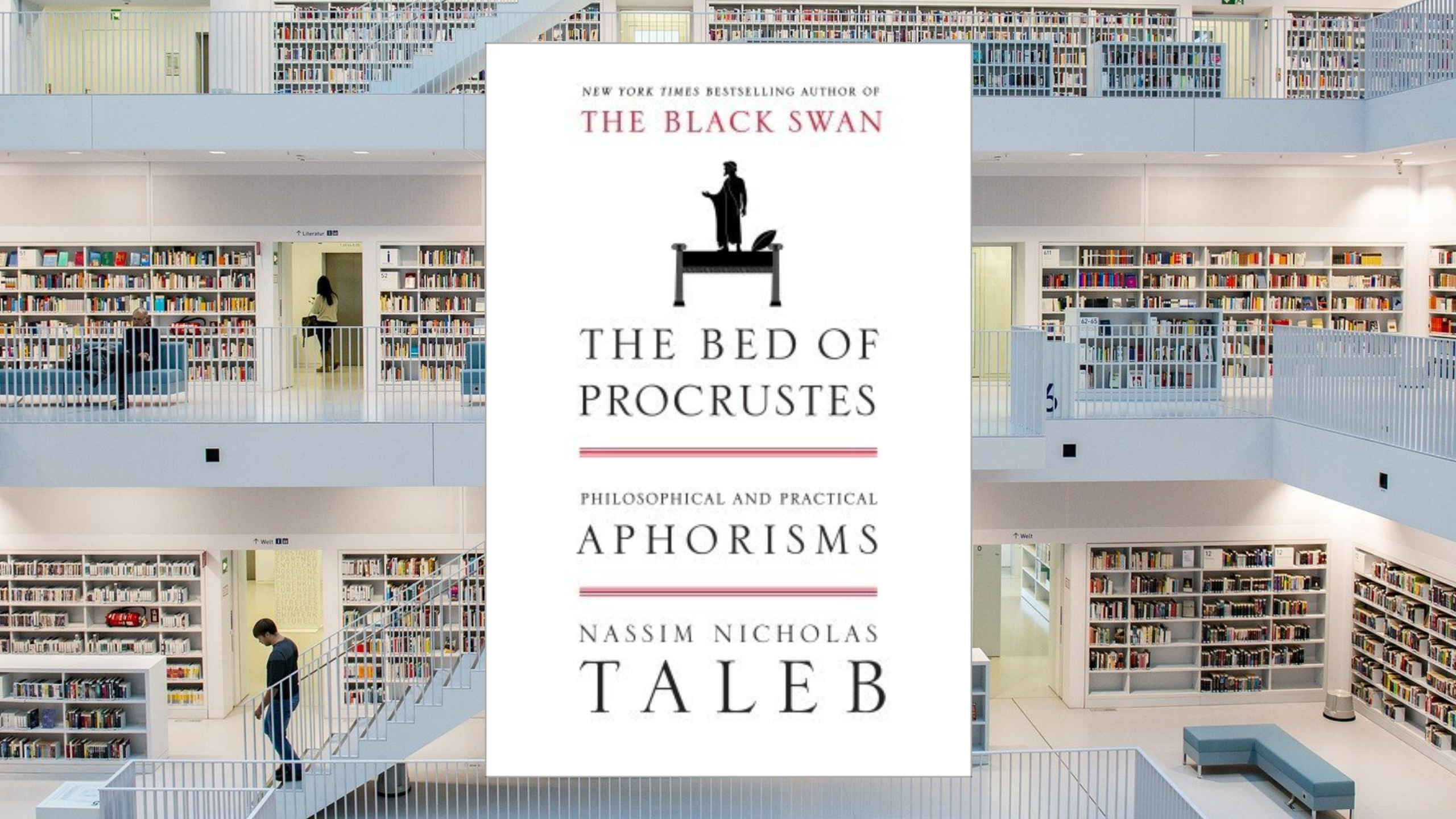
The Bed of Procrustes, by Nassim Taleb:
You thought you knew exactly how the world works. You thought you had the major answers all figured out, and that your personal picture of reality was fully updated. But then, you happen to read just one perfectly-crafted aphorism, quote, or sentence, and then you realized that "Yes! Actually, the world is like that!"
Now imagine an entire book that's like that, containing more than 500 such lightning bolts to the prefrontal cortex, and you'd get something like The Bed of Procrustes, by Nassim Taleb.
It's a collection of aphorisms (memorable expressions of a general truth or principle), that investigate opacity, luck, uncertainty, probability, human error, risk, and decision-making in a world we don’t understand. It's also extremely thought-provoking and wise, with valuable insights concerning every vital part of life that we deal with each day.
Sample Quotes from the Book:
“They will envy you for your success, for your wealth, for your intelligence, for your looks, for your status - but rarely for your wisdom."
“‘Wealthy’ is meaningless and has no robust absolute measure; use instead the substractive measure 'unwealth,' that is, the difference, at any point in time, between what you have and what you would like to have."
“People focus on role models; it is more effective to find anti-models - people you don't want to resemble when you grow up."
Read the Full Breakdown: The Bed of Procrustes, by Nassim Taleb
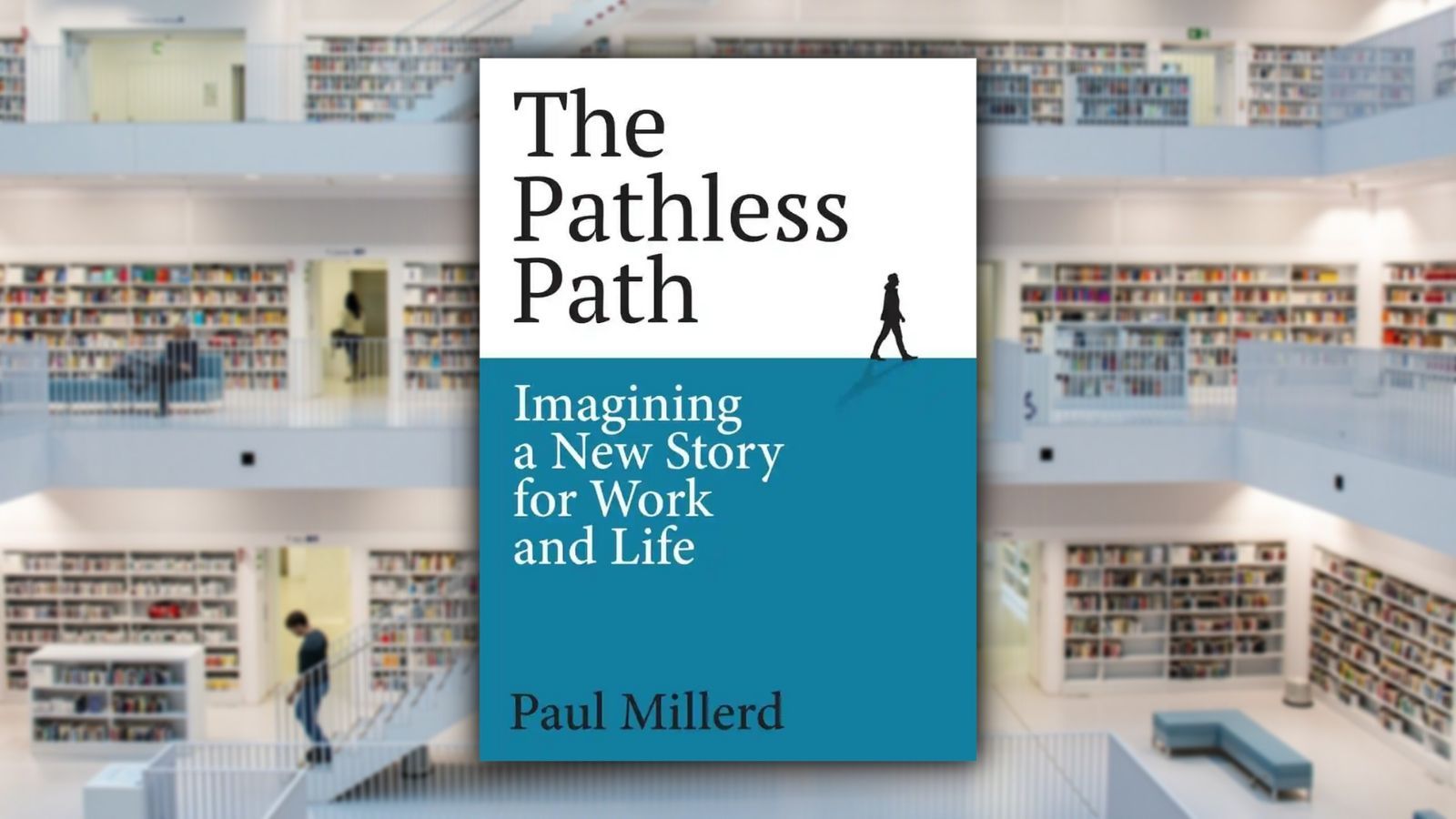
The Pathless Path, by Paul Millerd:
"I want to see people live the lives they are capable of, not just the ones they think they are allowed to live."
-Paul Millerd, The Pathless Path
The chances of a perfect life path being successfully scripted for you by someone else are precisely zero. We exist in a community of others, but individually, we are completely alone and our lives are up to us.
More than that, we have the opportunity - the ability - to curate our own reality every moment, and by definition, no one can do this for us. We think that the meaning of life is "out there" and that we have to find out what it is. When in reality, it is Life that asks us the questions, and how we live is our answer.
In the same way, Paul Millerd doesn't have any answers. There are no hacks or step-by-step formulas in this book, no mandatory reading lists, and no milestones you have to hit in order to live a meaningful life.
Instead, The Pathless Path is about the invisible scripts that shepherd us into prescribed modes of living and being in the world; it's about freedom and creativity; it's about money, meaning, and work; and it's about being fearlessly, unapologetically yourself, in a world that shouts back, "You can't do that!"
It's also about going somewhere, but not following anything. Getting lost, and finding yourself. Leaving, but never arriving.
The default path - doing what everyone is doing, living the same day, week, month, and year that everyone else is living over and over again - used to work for most people. But this future that we're building together is not a default future. We have so many more options and opportunities - possibilities for our lives that we can explore and take to their logical conclusions. The default path is dying away, and we have to come to terms with our own freedom and what we want to do with it.
I mean, here you are, the universe's most spectacular creation, and you're just kinda getting by. Living a "good enough" life, surviving day to day, coasting through a default world you never made.
The Pathless Path is Paul Millerd's answer to the question of what makes meaningful work and what we might aspire to in our lives. But you and I can never be Paul Millerd. His life is taken. You can only be yourself, and I can only be myself. The pathless path is narrow, wide enough for only one person. You.
Sample Quotes from the Book:
“The pathless path is an alternative to the default path. It is an embrace of uncertainty and discomfort. It's a call to adventure in a world that tells us to conform. For me, it's also a gentle reminder to laugh when things feel out of control and trust that an uncertain future is not a problem to be solved."
“So much of my identity had been connected with being a high achiever. Straight A's. Dean's List. McKinsey. MIT. When I was sick, I would have traded every last credential for a single day of feeling okay."
“‘Are those the only two options?’ I asked. 'Yes,' he replied. I listed a few other paths that he conceded were possible, but he added, 'I don't know anyone who has done that.'
Many people fall into this trap. We are convinced that the only way forward is the path we've been on or what we've seen people like us do. This is a silent conspiracy that constrains the possibilities of our lives."
Read the Full Breakdown: The Pathless Path, by Paul Millerd
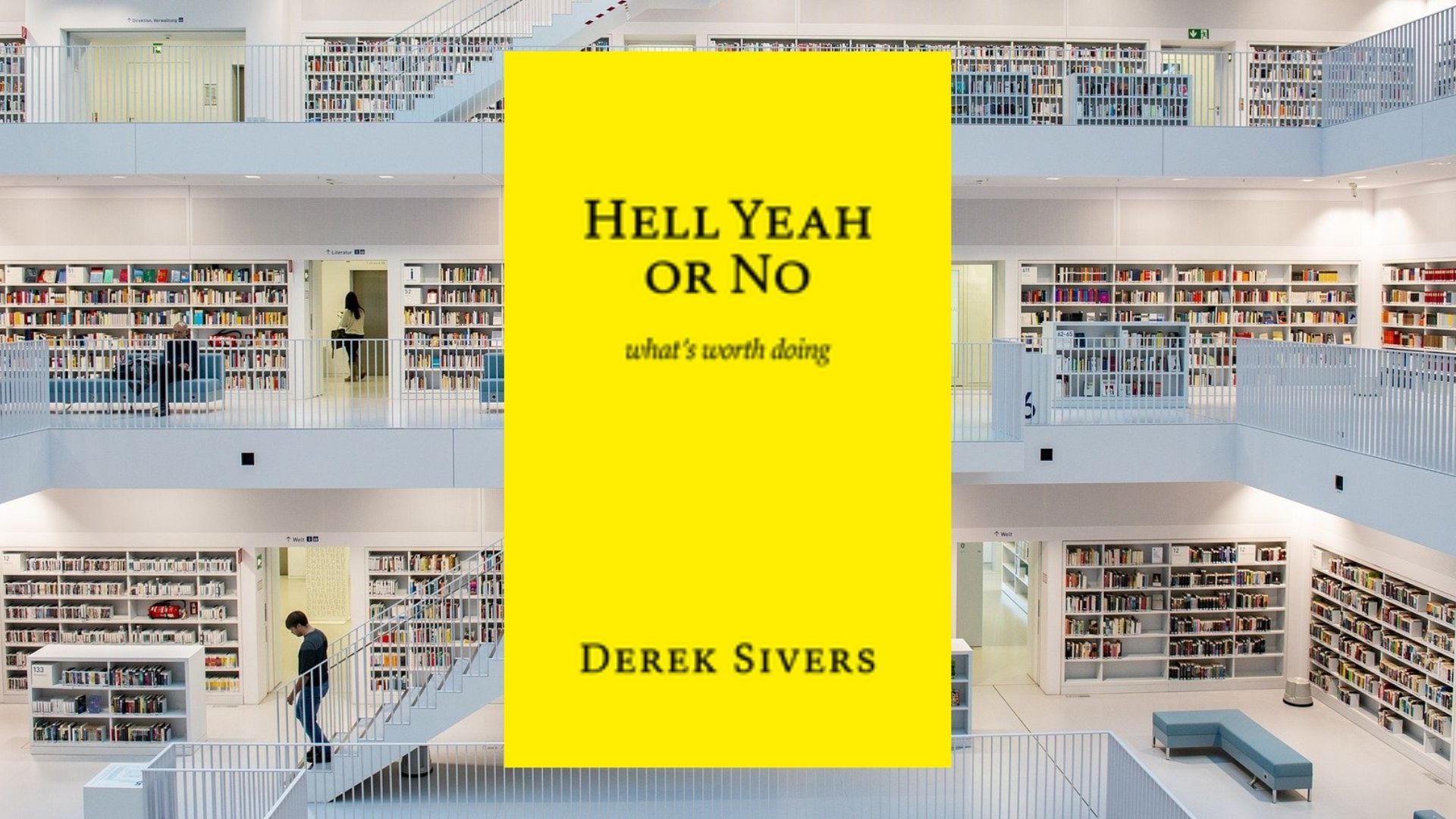
Hell Yeah or No, by Derek Sivers:
Certain authors just become associated with particular ideas over time, and one that I continue to profit from handsomely – year after year after year – is Derek Sivers’ insight that when making a decision, it’s either a “Hell yeah!” or it’s a “No.”
Either you’re consumed with interest by what you’ve decided to do - it’s just so completely obvious that this is the thing you should be doing/want to do - or you’re better off not doing it at all.
Hell Yeah or No is a fairly quick read, full of exceptionally useful frameworks for thinking, and I ended up with dozens of book notes and brilliant ideas to think about later. The interesting thing, though, is that many of Sivers' conclusions contradict each other!
Derek is a special thinker in that way. He can calmly and wisely approach big, intimidating questions, and he can disagree with himself multiple times (sometimes even in the same essay), all while getting closer and closer to a tentative answer that he then rigorously tests in the lab of his own life.
He's no armchair philosopher either! I'd even say that he's one of the most interesting people alive today. The dude sold his company, CD Baby, for millions of dollars, enabling him to forget about earning more money (he doesn’t need it or want it), and letting him put every single creative neuron in his brain into his creative work and, you know, living his actual life. And what a life!
In the past, he’s been a musician, a producer, a circus performer, an entrepreneur, a TED speaker, and a book publisher, but here in this book, he’s just your friend Derek.
Another really cool thing is that after the first 5000 limited edition hardcover copies he printed were sold out - raising $250,000 in 6 weeks - he donated the entire amount to help others. In his words:
“Yesterday I wired the entire $250,000 to the Against Malaria Foundation. That will buy 125,000 malaria nets, protecting ~225,000 people, averting ~65,000 cases of malaria, preventing ~125 deaths.”
Pretty damn cool if you ask me! Which you didn't haha. But still!
In the book itself, he prescribes the lifestyle of the happiest people that he knows: Having a well-paying job, while seriously pursuing their art for love, not money.
He writes that we all have a need for stability and adventure, certainty and uncertainty, money, and expression, and when we're out of balance, we need to step back a bit into solitude and silence, and really think through these problems for ourselves.
The book is just full of useful wisdom like this, and he lays out numerous simple though profound mental models to help guide our decision-making. He discusses things like:
*Leaving space and time in our lives so that we can throw ourselves completely into the few things that matter most.
*How good goals shape our actions in the present, not in the future.
*Why it's actually good to be a slow thinker and to change your mind often.
*How to relieve overwhelm by saying no to almost everything.
*Finding the intersection of what's smart, what makes you happy, and what's useful to others.
*The best way to sift through the advice (often unsolicited) that you'll often receive from others who think they know more about how you should live your life than you do.
*Why you should do everything that scares you.
*And a lot more....
Throughout the book, Derek Sivers makes a clear, concise, cogent case for the indisputably true assertion that this one life is your own, and you have to live it in a way that makes sense for you.
No one else on the planet has more at stake when it comes to your life than you do. Making good decisions and living fearlessly according to what you've decided takes astounding courage, but no one is more capable of doing it than you are.
Sample Quotes from the Book:
"When life or a plan feels ultimately unsatisfying, I find it's because I've forgotten to find the intersection of all three: what makes me happy, what's smart, and what's useful to others."
“We do so many things for the attention, to feel important or praised. But what if you had so much attention and so much praise that you couldn’t possibly want any more? What would you do then? What would you stop doing?”
“It’s easy to think I need something else. It’s hard to look instead at what to remove.”
Read the Full Breakdown: Hell Yeah or No, by Derek Sivers
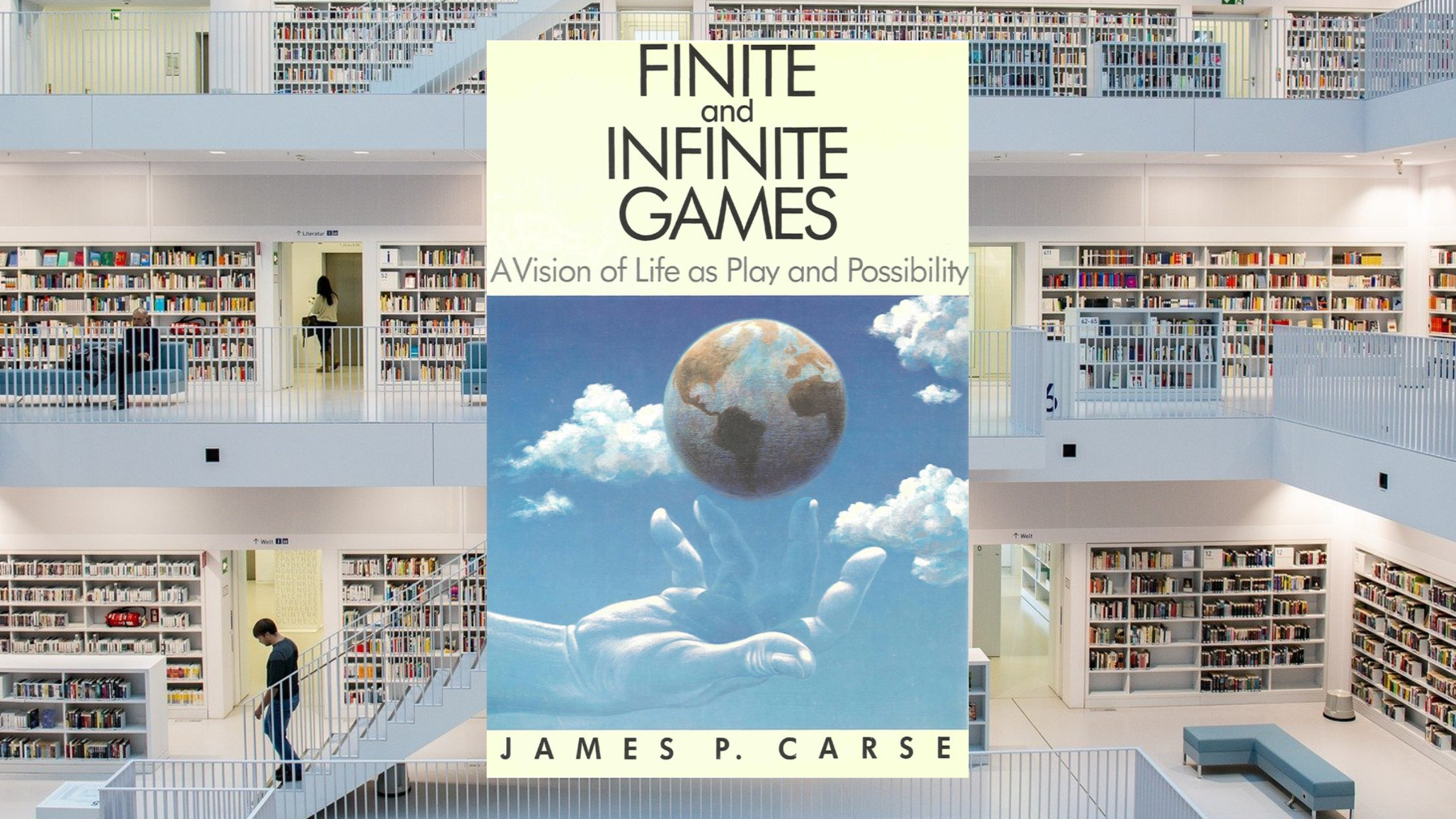
Finite and Infinite Games, by James P. Carse:
"There are at least two kinds of games: finite and infinite. A finite game is played for the purpose of winning, an infinite game for the purpose of continuing the play."
Thus begins one of the most endlessly fascinating philosophy books you're ever likely to come across - and one that can impact your life in ways that you can't unsee once you've seen them for the first time.
The themes explored in Finite and Infinite Games range from the difference between "education" and "training," and between "power" and "strength," to the nature of evil, our responsibilities towards others, and more. It touches on every part of life, but the final chapter consists of just one single sentence:
"There is but one infinite game."
By this, Carse means that all life, throughout the universe and all creation is bound up in the Infinite Game. And as Alan Watts said,
"You are something that the universe is doing, in the same way that a wave is something that the whole ocean is doing."
You are all of it, and every single "player," so to speak, is infinitely valuable to the functioning of the rest of the cosmos. There are no "extra" players in the game of Life, we're all just figuring this out as we go along, and our greatest adventures lay still further ahead.
Sample Quotes from the Book:
“What seems necessary is often only possible.”
“Unless we believe we actually are the losers the audience sees us to be, we will not have the necessary desire to win. The more negatively we assess ourselves, the more we strive to reverse the negative judgments of others. The outcome brings the contradiction to perfection: by proving to the audience they were wrong, we prove to ourselves the audience was right."
“No one can play a game alone. One cannot be human by oneself.”
Read the Full Breakdown: Finite and Infinite Games, by James P. Carse

The View from the Opposition:
No one's ideas are beyond questioning. In this section, I argue the case for the opposition and raise some points you might wish to evaluate for yourself while reading this book.
#1: The Book Could Have 450 Tweets
While it's somewhat fair to say that Excellent Advice for Living is just a collection of wise quotes thrown together in a book, it's also wonderful to have these lessons all in one place, and even better to have them curated by someone as intelligent and admirable as Kevin Kelly.
What I would have liked to have seen, though, is to have Kelly expand on at least a few of these aphorisms and lend some of his own color and flavor to them. It's great that they were curated and put together by him personally, but I feel as though you could almost just change the author's name on the front cover and you wouldn't lose much of the impact of this book.
There must have been specific situations Kelly found himself in to make these aphorisms relevant and meaningful to him, some story behind why he chose one particular lesson and not others. Without any context or explanation, that valuable information is lost.
The aphorisms themselves are also rather loosely organized, although a few of them dealing with death and regret are located at the end, etc. There is, however, a collection of lessons from the book curated by Kyle Kowalski at Sloww where he organizes them by subject.
"The test of a first-rate intelligence is the ability to hold two opposed ideas in the mind at the same time and still retain the ability to function.”
-F. Scott Fitzgerald

Questions to Stimulate Your Thinking:
The quality of your questions determines the quality of your life. That's also how you get the absolute most out of any book that you decide to read:
You ask great questions the whole time - as though the book was on trial for its life.
Here in this section are a few questions that can help guide and stimulate your thinking, but try to come up with your own additional questions, especially if you decide to read this book the whole way through...
#1: "What kind of essential life lessons would you pass down to someone younger than yourself?"
#2: "Which of these lessons do you most need to learn? Have you noticed that the same problems keep coming up again and again in your life until you learn the lesson you needed to learn? Do you believe that's true?"
#3: "Which of these aphorisms will you take action on today?"
#4: "Do you believe that a person can learn from absorbing the wisdom of others? Or do you believe that you have to learn these essential life lessons firsthand? A combination of both?"
#5: "When was the last time you chose to take the best option instead of the easiest one? What happened? Is this something you can commit to doing over the long term?"
#6: "Where in your life do you have 'five more' to give? Where could you keep going, past the point where part of you wants to stop?"
#7: "What does your personal time horizon look like? Do you plan in decades? Or do you rarely think further ahead than tomorrow?"
#8: "What do you think the far future of humanity will look like? What will change? What will stay the same? What can you do to help steer humanity in a more positive, hopeful direction?"
#9: "What can you do, today, to help someone else win? To help someone achieve their goals? How many people can you help?"
#10: "Are you pronoid? That is, do you believe that the universe is conspiring behind your back to make you happy, successful, and wise?"
"Judge a man by his questions, rather than by his answers."
-Voltaire

Action Steps:
So you've finished reading. What do you do now?
Reading for pleasure is great, and I wholeheartedly support it. However, I am intensely practical when I'm reading for a particular purpose. I want a result. I want to take what I've learned and apply it to my one and only life to make it better!
Because that's really what the Great Books all say. They all say: "You must change your life!" So here, below, are some suggestions for how you can apply the wisdom found in this breakdown to improve your actual life.
Please commit to taking massive action on this immediately! Acting on what you've learned here today will also help you solidify it in your long-term memory. So there's a double benefit! Let's begin...
#1: Take It One Aphorism at a Time
It's really easy to read this book too fast and miss all the magic. It's not a long book whatsoever, but try and slow down a little bit and take a few minutes to ponder your favorite aphorisms, maybe as you're doing the dishes or walking around the block. More will be revealed to you!
#2: Try and "Break" an Aphorism
An interesting exercise is to try and find out where one of Kelly's aphorisms breaks down, or where it doesn't apply. "Breaking" an aphorism means to find some special situation in which it's no longer true anymore, and where a more complex, nuanced explanation or thought process is required.
#3: Come Up With Your Own
Try and formulate your own aphorism! It's fun! Off the top of my head, I could do something with the idea that "It's never a good idea to trust anyone who says, 'Trust me!'" Yes, it could be better, but as a general theory of how the world works, it's not bad!
Undoubtedly, you have your own special way of seeing, your own special vantage point on the world, and you could come up with something that captures complexity in an interesting, useful way.
"The path to success is to take massive, determined action."
-Tony Robbins

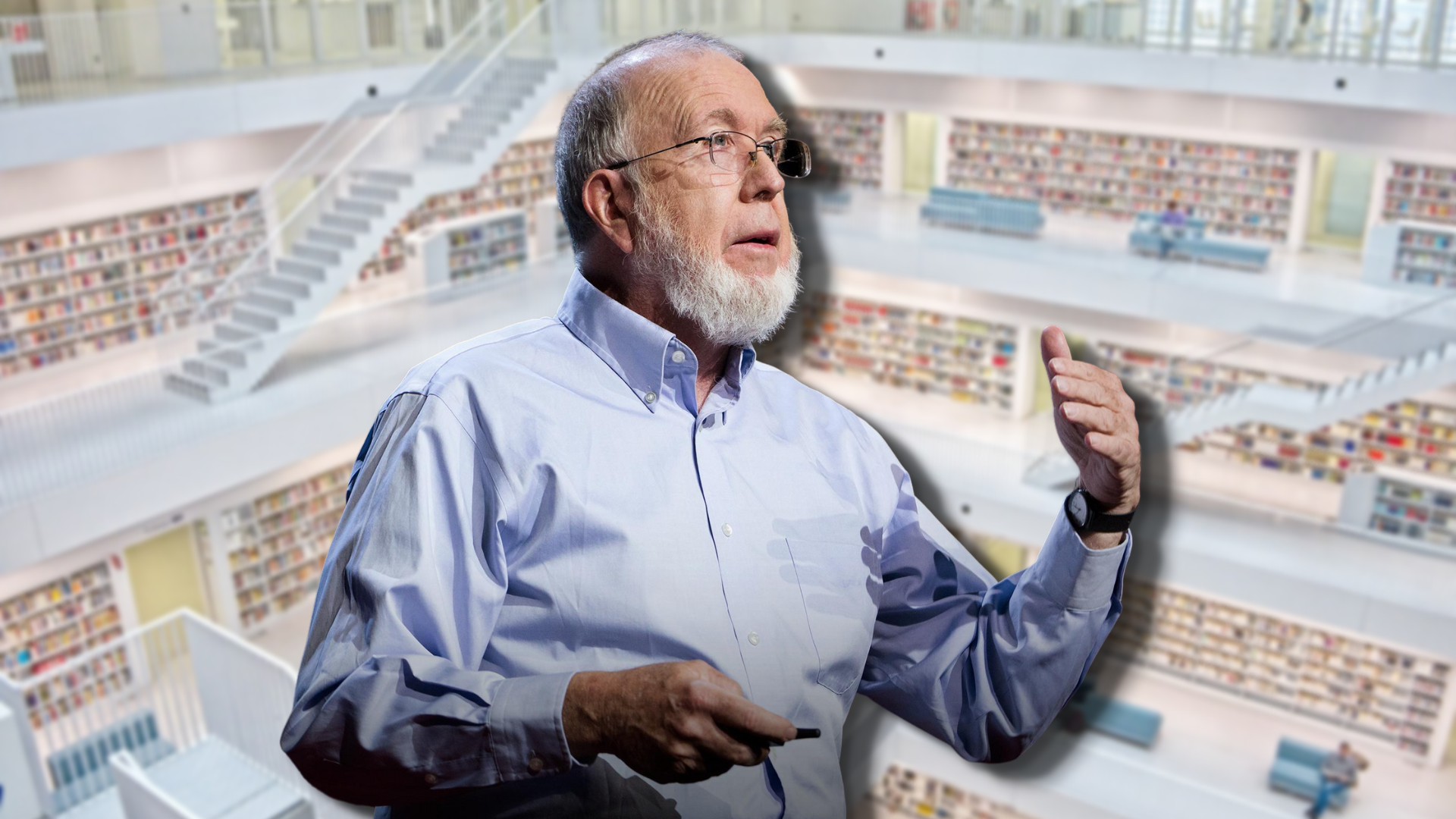
About the Author:
Kevin Kelly is Senior Maverick at Wired magazine. He co-founded Wired in 1993 and served as its Executive Editor from its inception until 1999. He is also the editor and publisher of the Cool Tools website, which gets half a million unique visitors per month. From 1984-1990 Kelly was publisher and editor of the Whole Earth Review, a journal of unorthodox technical news. He co-founded the ongoing Hackers' Conference and was involved with the launch of the WELL, a pioneering online service started in 1985. He authored the best-selling New Rules for the New Economy and the classic book on decentralized emergent systems, Out of Control.
Additional Resources:
KK.org | Main Website of Kevin Kelly
1,000 True Fans | Making a Living from Creative Work
Excellent Advice for Living | Tim Ferriss Podcast
Excellent Advice to Optimize Your Life | Rich Roll Podcast
50 Life Lessons from Kevin Kelly | Sloww
This Book on Amazon:
Excellent Advice for Living, by Kevin Kelly
If You Liked This Book:
The Inevitable, by Kevin Kelly
What Technology Wants, by Kevin Kelly
The Bed of Procrustes, by Nassim Taleb
The Pathless Path, by Paul Millerd
Hell Yeah or No, by Derek Sivers
Finite and Infinite Games, by James P. Carse
The Second Mountain, by David Brooks
The Daily Laws, by Robert Greene
The Daily Stoic, by Ryan Holiday
A Calendar of Wisdom, by Leo Tolstoy

